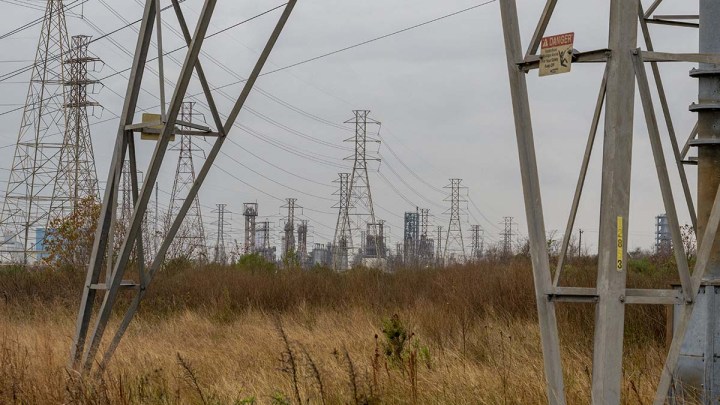
Texas lawmakers want state-funded power plants to improve grid reliability
Texas lawmakers want state-funded power plants to improve grid reliability

Lawmakers in Texas are trying to figure out how to prevent another catastrophic failure in the state’s power grid, like the one that caused millions of people to lose power in the middle of a winter storm a couple of years ago. One idea is to build state-funded power plants.
But a recent study shows that would cost Texas 80% more than lawmakers estimated. It’s a problem that cities and states around the country will likely have to grapple with given increased pressures on the electrical grid.
Texas’ winter storm Uri triggered a blackout of the state’s power grid in 2021, during which more than a third of Texans lost power for days.
“The governor’s own count is 246 people died in the freeze of 2021 because they did not have electricity or heat,” said Ed Hirs, an energy fellow at the University of Houston.
Texas lawmakers are debating a bill that would fund several new natural gas plants to sit on the sidelines in case of crisis, sort of like a fleet of emergency generators. And Hirs is all for it.
“The state desperately needs reliable generation to join the grid, it doesn’t really matter how it happens,” he said.
Even, Hirs said, with a price tag of $18 billion. Texas went decades without spending money to maintain a reliable generation fleet. Now comes the payback and the catch-up.
While it’s usually private companies that pay for new plants and sell the energy, this time, it would be taxpayers and ratepayers footing the bill.
“We view that as a fundamental departure from a competitive electric market,” said Michele Richmond, executive director for the Texas Competitive Power Advocates, a trade association.
According to Richmond, the plan doesn’t make sense. It’s kind of like buying a bunch of brand new cars “to keep in your garage just in case your main car breaks down catastrophically one day,” she said. “That’s inefficient and extremely expensive.”
The private industry — fossil fuels and renewables alike — will have a harder time competing against a state-backed energy provider, she added. And even existing power plants might be forced to retire early.
All that could make the power grid less reliable, Richmond said — not more. “The entire country is watching what’s happening in Texas,” she said.
“Everyone’s kind of struggling with our climates changing. There are extremes,” said Cyrus Reed, conservation director for the Lonestar chapter of the Sierra Club. “And how do we make sure there’s enough, you know, juice on the system to meet people’s needs?”
With climate change wreaking havoc on weather patterns and grids across the country, meeting energy demand is going to get more challenging.
Reed thinks that having a backup power system is smart. It’s just that this proposal is expensive, and “it picks one technology — gas, which we believe is a technology that’s on its way out,” he said.
He added that the focus should be more on the demand side instead of on the energy supply. In other words, conservation — things like weatherizing homes and businesses to make them more energy efficient.
There’s a lot happening in the world. Through it all, Marketplace is here for you.
You rely on Marketplace to break down the world’s events and tell you how it affects you in a fact-based, approachable way. We rely on your financial support to keep making that possible.
Your donation today powers the independent journalism that you rely on. For just $5/month, you can help sustain Marketplace so we can keep reporting on the things that matter to you.


















